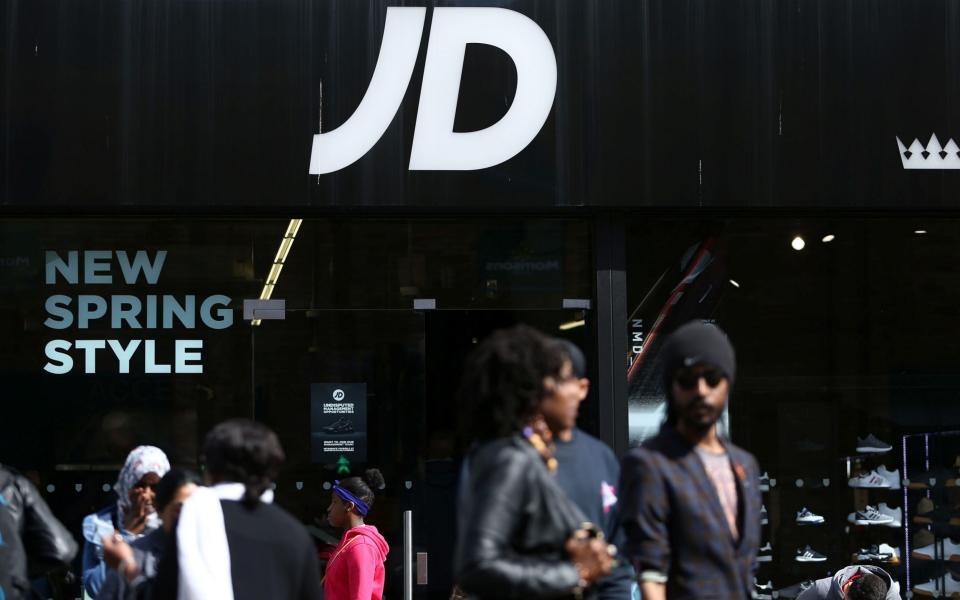JD Sports boss hits out at taxpayer support for supermarkets

The boss of JD Sports has attacked ministers for handing a business rates cut to supermarkets and other stores which stayed open during lockdown - saying the cash should have been used to cut retail rents instead.
Peter Cowgill took a swipe at grocers because he said they "have had the benefit of higher turnover and higher margin" due to panic buying while also getting rates relief as part of emergency measures to prevent economic collapse.
Supermarkets were among chains deemed essential and allowed to continue operating when Britain shut down at the height of the pandemic, but still saved millions of pounds from the high street-wide tax break with a £532m boost for Tesco alone.
Meanwhile retail landlords are struggling because many tenants have been unable to afford rent. With no state support, these property owners are pushing struggling occupiers to pay up.
Mr Cowgill has been on a rent renegotiation crusade for his shops after JD Sports was forced to shut almost all of its stores around the world due to lockdown, losing out on sales.
Shopping centre Intu has already tumbled into administration after running out of money, and a swathe of weaker tenants have already renegotiated their bills.
The retail chief, who has run JD Sports since 2004, said that some of the rate relief cash could have been diverted to commercial landlords.
He said: "That money could have been used for the vast majority of landlords, who could then realign their rents for their tenants.
"As a representative of the stronger retailers who attract footfall, I’m tired of sitting next door to occupants who are paying 30-40pc less for the same box because they have a lease break or an expiry or have gone through an insolvency process. There has to be a realignment. Stronger tenants shouldn’t be subsidising the weaker tenants."
JD Sports also warned that nervous customers are steering clear of shopping centres due to the risk of Covid-19 spreading in enclosed spaces.
The FTSE 100 retailer, which began reopening its stores in some countries in April, said: “Initial footfall has been weaker in malls and shopping centres, particularly in Northern Europe at weekends, as consumers remain nervous about the risks associated with densely occupied enclosed spaces.”
However, this has been partially offset by customers spending more and being less inclined to browse.
JD Sports cancelled its final dividend despite reporting a 3pc rise in pre-tax profit to £348.5m for the year to the end of February.
This was before the pandemic hammered the retail sector, and Britain's biggest sportswear chain has since warned it would take a significant hit from the crisis.
Executive chairman Mr Cowgill said he was encouraged by the positive trading before Covid-19 and believed his firm is well-placed to regain those sales. He did not elaborate on current trading.
He said: "Looking longer term, there is inevitably considerable uncertainty as to what the effect of Covid-19 will be on consumer behaviour and footfall, with future store investments highly dependent on rental realism and lease flexibility."
JD, which put its Go Outdoors business through a pre-pack administration last month, also said it was in negotiations with the competition watchdog after appealing its decision to reject JD's purchase of trainer seller Footasylum.
Analysts at Peel Hunt said: “[Trading] has clearly been volatile in store, but the constant is that online has been extremely strong, commonly more than doubling when the stores were closed.
"We would guess that [like-for-like sales] are definitely down in store, but more in the Primark world (low double digits) than the Pret world (minus 74pc)."
Shares fell 0.3pc to 672p in morning trading.

 Yahoo Finance
Yahoo Finance 